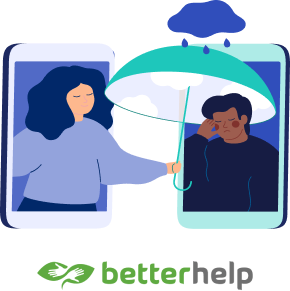How to Help a Teenager with Anxiety
There are several ways to help teenagers manage anxiety, from online and in-person talk therapy to medication. Understanding the underlying causes of their anxiety and knowing when to seek help from a mental health professional are critical first steps in the process.
When to Seek Help for Teens With Anxiety
Teens who experience intense anxiety that causes distress and interferes with school and extracurricular activities may need help dealing with their anxiety.
Like adults, teens can have many types of anxiety, including generalized anxiety, panic disorder, agoraphobia, separation anxiety, social anxiety and health anxiety. If your child’s anxiety worsens or their coping strategies break down — or if they don’t sleep well or eat properly and their anxiety leads to other physical symptoms — contact your teen’s doctor about getting treatment
Therapy for Teenagers with Anxiety
Therapists consider cognitive-behavioral therapy the gold standard treatment for anxiety disorders in teens. CBT has a successful track record of treating anxiety, lowering recurrence and relapse rates and being a useful addition to psychopharmacological treatment.
Medical research shows an association between anxiety disorders and relationship issues, whether with friends, family or teachers. There’s also a link between anxiety and school absenteeism. Studies detail significant benefits from anxiety-focused psychotherapy.
Teens can utilize CBT online or in person. Many teens prefer online therapy because it’s private, convenient and flexible. Studies show a high efficacy for online treatment for anxiety, noting that it’s as effective as in-person treatment, especially when paired with the right medication.
Anxiety Medication for Teens
Therapists sometimes suggest a combination of prescription medication and CBT for teens. The American Academy of Child and Adolescent Psychiatry recommends deferring anxiety medications unless the physician thinks the benefits outweigh the risks.
Duloxetine (Cymbalta) is the only medication approved by the U.S. Food and Drug Administration for children ages 7 years and older who have a generalized anxiety disorder. Some physicians prescribe off-label medications that have been proven safe and effective for treating anxiety but aren’t FDA-approved.
Besides your child’s pediatrician, psychiatrists, general practitioners and psychiatric nurse practitioners can prescribe anti-anxiety medications.
Antidepressants for Anxiety
Researchers have not studied the efficacy of psychopharmacotherapy among pediatric populations as extensively as they have for adults. Duloxetine is the FDA-approved serotonin-norepinephrine reuptake inhibitor, or SNRI, for children and teens.
Studies have shown, however, that selective serotonin reuptake inhibitors, or SSRIs, are more efficacious than SNRIs in treating pediatric anxiety. SSRIs are a class of drugs known as antidepressants.
SSRIs such as fluoxetine, marketed under the brand name Prozac, among others, and sertraline, marketed under the brand name Zoloft, are first-line pharmacologic treatments.
- SNRIs are a class of medications used to treat anxiety, depression and chronic pain. They include venlafaxine, duloxetine, levomilnacipran and desvenlafaxine. Some patients respond better to SNRIs than SSRIs.
- NASSAs, noradrenaline and specific serotonergic antidepressants, are atypical antidepressants. These are an option for people who are anxious. They cause increased release of the brain chemicals serotonin and norepinephrine. The most common is mirtazapine.
- NDRIs are a class of drugs containing bupropion. These drugs are known for their energizing effects. They’re also prescribed to treat attention-deficit/hyperactivity disorder.
- TCAs, or tricyclic depressants, are an older group of medications that have several side effects. Doctors rarely recommend TCAs.
- MAOIs, or monoamine oxidase inhibitors, were the first class of antidepressants. They’re rarely used because of their potentially dangerous side effects.
The most prescribed antidepressants for teens with anxiety disorders are SSRIs. Research shows they have some effectiveness for treating OCD, a type of anxiety-related disorder involving repetitive and disturbing thoughts. Although doctors prescribe SSRIs, studies don’t agree on how well they treat symptoms of anxiety disorders in teens.
Benzodiazepines for Anxiety
Doctors can prescribe a class of medications known as benzodiazepines, which include the drugs lorazepam and clonazepam. The drugs are usually used for short-term treatment and specific bouts of anxiety, such as flying on a plane or giving a performance. They’re not recommended for teens with anxiety disorders because of the risks of addiction.
Brand names of benzodiazepines include Xanax, Librium, Klonopin, Valium, Ativan and Serax. Use caution when taking benzodiazepines for pediatric disorders because of a heightened risk of misuse. Additional research of pharmacological treatments for teen anxiety is needed.
Advertisement
Professional Therapy, Done Online
A licensed therapist with BetterHelp can provide professional support and guidance, on your schedule. Sign up and get matched in as little as 48 hours.
Get Started
Additional Ways to Help Teens With Anxiety
Parents, teachers, counselors and mentors can help teens with anxiety in different ways. Parents can model good stress management skills, normalize anxiety and talk about it openly. Teachers and counselors can learn to recognize the symptoms of anxiety and introduce relaxation and coping skills, such as the CBT-based practices of breathing techniques or mindfulness. Peers may provide important messaging around breaking the stigma of mental health challenges.
- Encourage teens to participate in extracurricular activities such as sports and music.
- Engage with and support community-wide, evidence-based programs that promote healthy development, create support systems and help develop social networks.
- Ensure you and your family get enough sleep, eat balanced meals, exercise, unplug from social media and connect with family and friends.
- People who work with teens should be trained to recognize the signs of anxiety.
- Talk to your children about the use of drugs, firearms, tobacco and alcohol and their consequences.
- Urge teens to follow positive social media content.
Remind your teen that anxiety is a normal part of growing up. Help them explore and express their feelings. Try shifting their focus as a way to manage stress, fear or anxiety.
Helping With an Anxiety Crisis
Sometimes anxiety escalates into a panic attack. A panic attack is a sudden and intense wave of fear that can trigger a sense of impending doom, a rapid heartbeat, sweating, trembling and shortness of breath. Suicidal ideation may accompany a panic attack.
- Call: 988, the Suicide and Crisis Lifeline, to speak to a trained counselor.
- Call: 1-800-273-8255.
- Call: Your child’s doctor. Even after hours, they likely have a call service or emergency coverage.
- Chat: https://988lifeline.org/chat/
- Go to the ER: In rare cases of extreme panic attacks with severe hyperventilation, you may need to visit a hospital emergency room.
- Explore:https://988lifeline.org/help-yourself/
- Text: Texting TALK to 741741 will connect you to trained lifeline staff.
There are ways to help your child get through a panic attack. Help them think about a panic attack as a wave that they’re riding, one that will peak and then pass.
Grounding is a strategy where you ask your child to name aloud things they can see, touch, hear and smell, which helps them focus. Deep, slow breathing can also help calm the body.
Advertisement
Professional Therapy, Done Online
A licensed therapist with BetterHelp can provide professional support and guidance, on your schedule. Sign up and get matched in as little as 48 hours.
Get Started
Calling this number connects you with a Drugwatch representative. We will direct you to one of our trusted legal partners for a free case review.
Drugwatch's trusted legal partners support the organization's mission to keep people safe from dangerous drugs and medical devices. For more information, visit our partners page.






